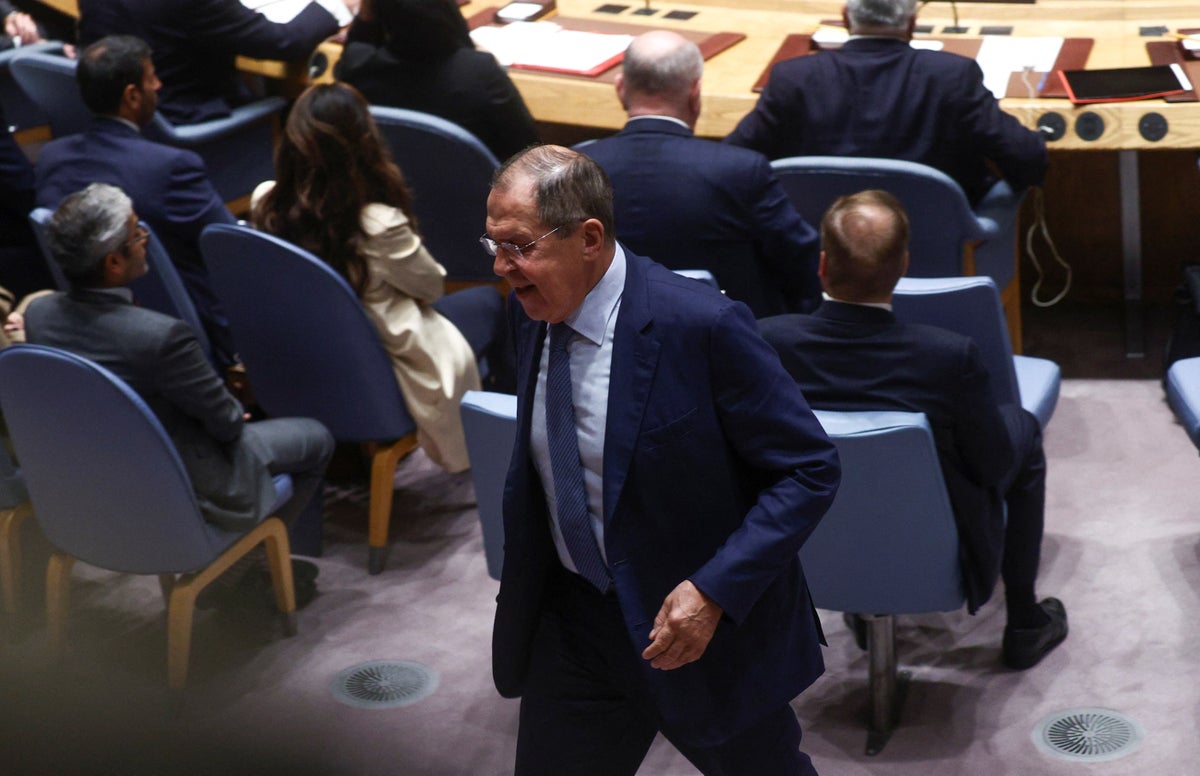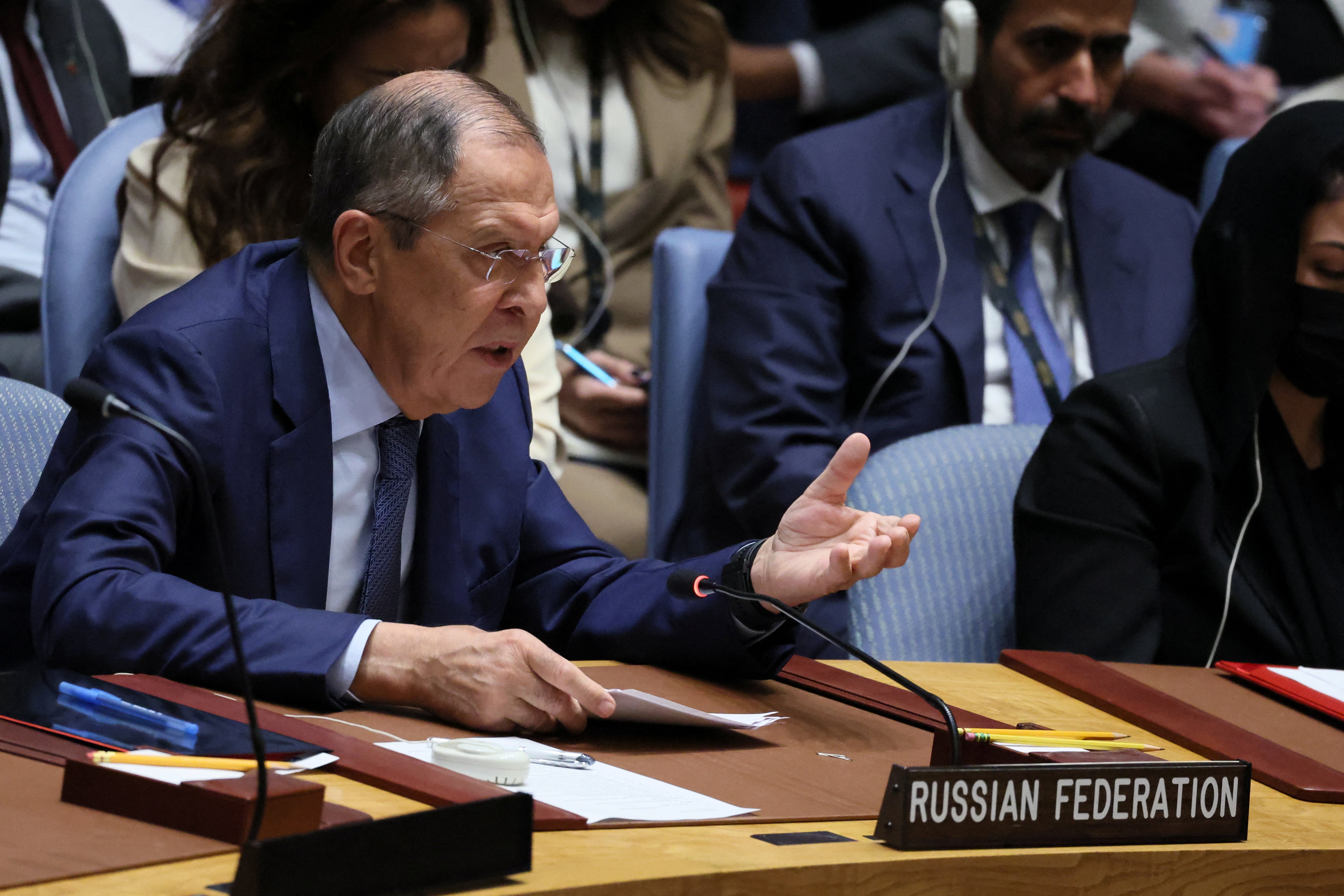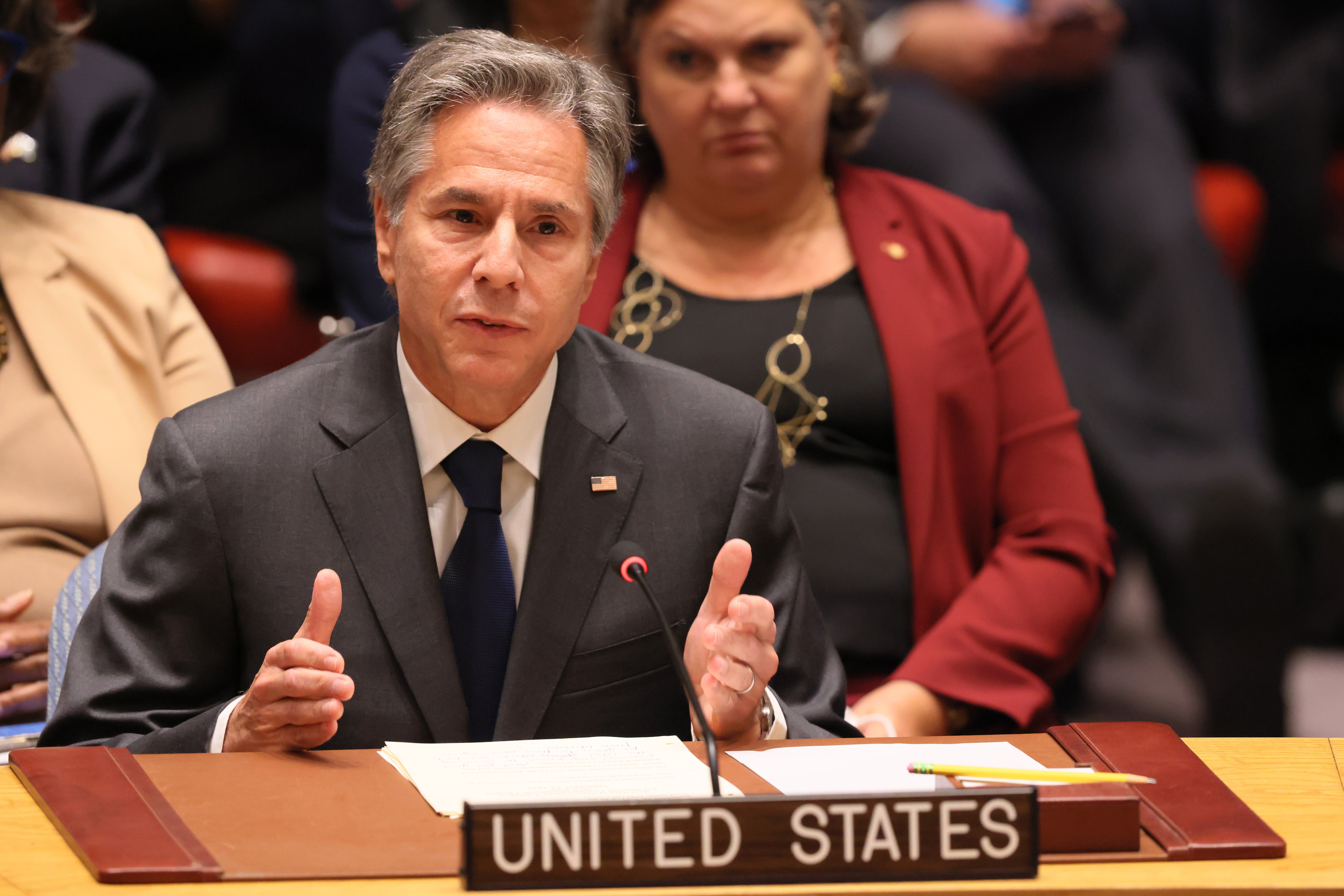
The world’s top diplomatic stage at the UN Security Council (UNSC) devolved into the Russian foreign minister calling Volodymyr Zelensky a “b*****d” and walking out after a round of condemnation and accusations of war crimes aimed at Russia.
Almost all foreign ministers of the 15 UNSC members present at Thursday’s meeting expressed growing frustration with Russia’s invasion of Ukraine, with even Moscow’s closest allies taking an increasingly dim view.
Many called out Vladimir Putin for the recent nuclear threats he has made, with the strength of tone of that criticism depending on their government’s stance on the war.
Eventually Russia’s foreign minister Sergei Lavrov called the Ukrainian president a “b*****d” and slammed the “collective west” for regarding him as “their b*****d”.
“Such outrages remain unpunished because the United States and their allies with the connivance of international human rights institutes have been covering up the crimes of the Kyiv regime based on the policy of ‘Zelensky might be a b*****d, but he’s our b*****d’,” the foreign minister said.
He walked out after his speech and remained absent for most of the session having already arrived 90 minutes late – missing the UN chief Antonio Guterres’s briefing.
“What’s particularly cynical here is the position of states that are pumping Ukraine full of weapons and training their soldiers,” Mr Lavrov said.
“The goal is… to drag out the fighting as long as possible in spite of the victims and destruction in order to wear down and weaken Russia.
“The intentional fomenting of this conflict by the collective west remains unpunished.”
Addressing the council immediately after Mr Lavrov, Britain’s foreign secretary James Cleverly said he was “not surprised” that Russia’s foreign minister left the chamber after receiving the “collective condemnation of this council”.
He said the Kremlin had tried to “lay the blame on those imposing sanctions” and that “every day, the devastating consequences of Russia’s invasion become more clear”.
Russia’s allies – India, China and Brazil, which have often shunned or outright opposed western views on the invasion – also spoke about the grave consequences of war upending food and energy securities in the world in a harsher tone than before.
“The trajectory of the Ukraine conflict is matter of profound concern for the entire international community. The future outlook appears even more disturbing,” said Indian foreign minister Subramaniam Jaishankar.

“If egregious attacks committed in broad daylight are left unpunished, this council must reflect on the signals we are sending on impunity. There must be consistency if we are to ensure credibility,” he added.
Without mentioning Russia in a carefully worded statement, Chinese foreign minister Wang Yi laid out China’s firm stance that “the sovereignty and territorial integrity of all countries should be respected. The purposes of the principles of the UN Charter should be observed.”
US secretary of state Antony Blinken slammed Mr Putin for his veiled reference to use of nuclear weapons in war.
“Every council member should send a clear message that these reckless nuclear threats must stop immediately. Tell President Putin to stop the horror he started,” Mr Blinken said.

“One man chose this war. One man can end it,” he added. “Because if Russia stops fighting, the war ends. If Ukraine stops fighting, Ukraine ends.”
Foreign ministers and top officials from Albania, France, Ireland, Gabon, Germany, Ghana, Kenya, Mexico and Norway offered similar rebukes of Russia and the war.
“Russia’s actions are blatant violation of the Charter of the United Nations,” said Albanian foreign minister Olta Xhacka. “We all tried to prevent this conflict. We could not, but we must not fail to hold Russia accountable.”
Mr Lavrov was not in the meeting when Ukrainian foreign minister Dmytro Kuleba demanded a special tribunal to hold Russia’s leaders accountable for alleged war crimes.
“There will be no peace without justice,” Mr Kuleba said. “None of the crimes of Russia in Ukraine would be possible without the crime of aggression.”
He ridiculed Mr Lavrov for leaving the room, saying: “I notice that Russian diplomats flee almost as quickly as Russian soldiers.”
Mr Guterres branded Russia’s nuclear threats against the west “totally unacceptable” and warned the latest developments in Ukraine were “dangerous and disturbing”. He said it was a step closer to an “endless cycle of horror and bloodshed”.







